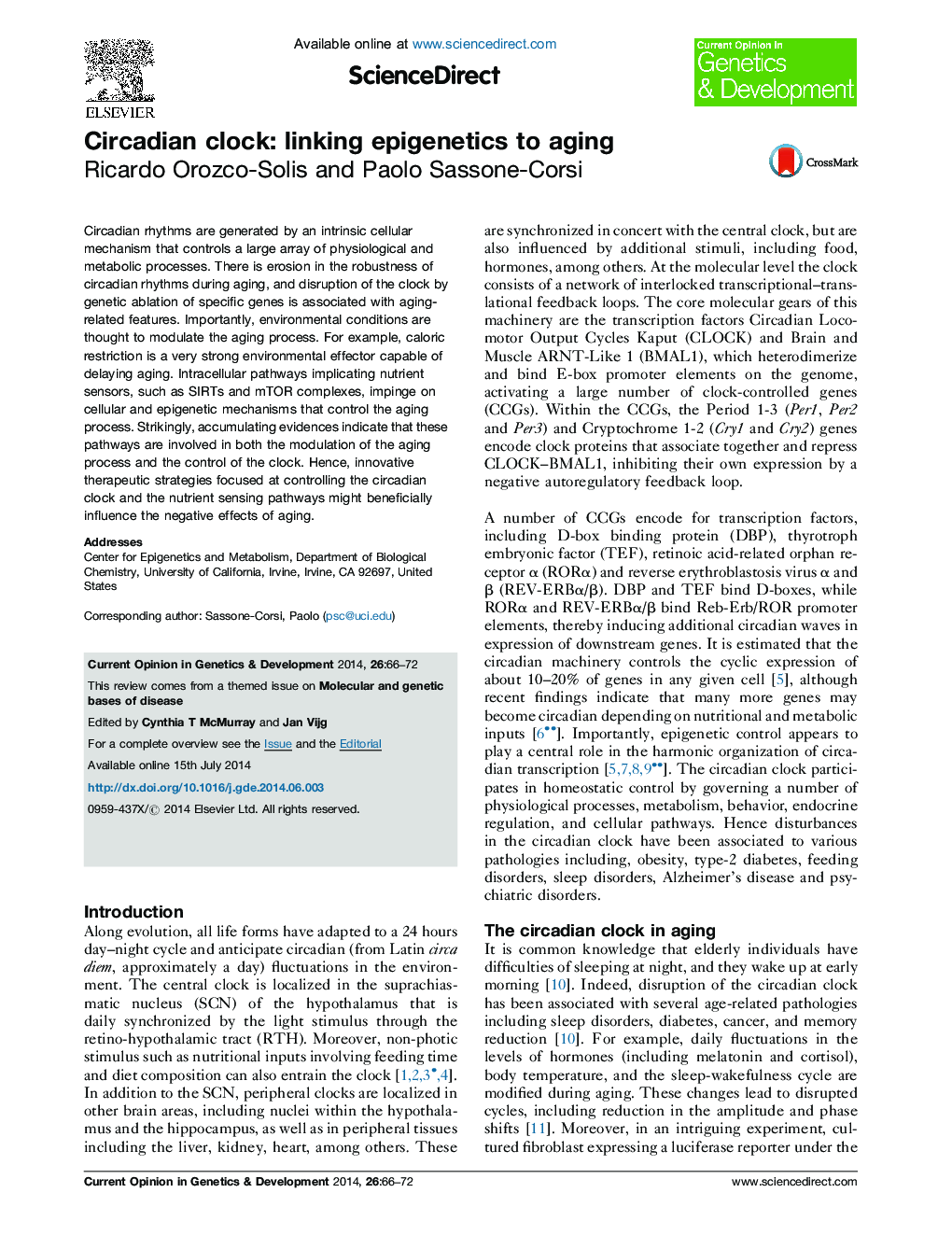| Article ID | Journal | Published Year | Pages | File Type |
|---|---|---|---|---|
| 5893354 | Current Opinion in Genetics & Development | 2014 | 7 Pages |
Circadian rhythms are generated by an intrinsic cellular mechanism that controls a large array of physiological and metabolic processes. There is erosion in the robustness of circadian rhythms during aging, and disruption of the clock by genetic ablation of specific genes is associated with aging-related features. Importantly, environmental conditions are thought to modulate the aging process. For example, caloric restriction is a very strong environmental effector capable of delaying aging. Intracellular pathways implicating nutrient sensors, such as SIRTs and mTOR complexes, impinge on cellular and epigenetic mechanisms that control the aging process. Strikingly, accumulating evidences indicate that these pathways are involved in both the modulation of the aging process and the control of the clock. Hence, innovative therapeutic strategies focused at controlling the circadian clock and the nutrient sensing pathways might beneficially influence the negative effects of aging.
